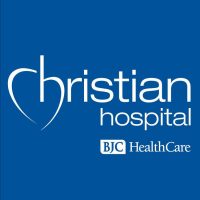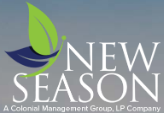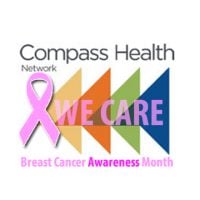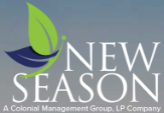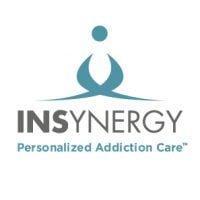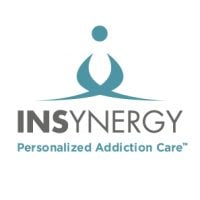Saint Louis Counseling
Drug Rehab Center in Florissant, Missouri
Saint Louis Counseling is an accredited mental health and substance abuse facility that offers a variety of specialized services catered to individual needs, including outpatient drug and alcohol treatment, cognitive behavioral therapy, trauma counseling, family therapy, and relapse prevention.
About Saint Louis Counseling in Missouri
Saint Louis Counseling is a trusted mental health and substance abuse facility located in Florissant, Missouri. They offer comprehensive outpatient drug and alcohol treatment to adults and adolescents, as well as individual, couples, and family counseling. Their team of certified professionals is committed to providing quality patient care and evidence-based treatment.
At Saint Louis Counseling, they offer a variety of specialized services catered to individual needs. These services can include cognitive behavioral therapy, motivational interviewing, trauma counseling, family therapy, and relapse prevention. In addition, they offer an individualized approach to recovery that focuses on the physical, mental, and spiritual aspects of the patient. They also offer resources for ongoing recovery, such as support groups, peer support, and education and workshops.
Saint Louis Counseling is accredited by the Commission on Accreditation of Rehabilitation Facilities (CARF) and has achieved the highest level of certification from the Missouri Division of Behavioral Health. In addition, they have been recognized by SAMHSA’s National Registry of Evidence-Based Programs and Practices (NREPP) for their commitment to providing evidence-based treatments for substance abuse. They offer unique services such as holistic treatments for dual diagnosis, trauma-informed care, and life skills coaching. Their mission is to provide an individualized and compassionate approach to help clients build a healthier and more fulfilling life.
Genders
Ages
Modality
Additional
Conditions and Issues Treated
Levels of Care Offered
This center offers a variety of custom treatment tailored to individual recovery. Currently available are Outpatient, with additional therapies available as listed below.
Outpatient programs at Saint Louis Counseling, the Florissant resident can live with their family while continuing with their job or studies. Treatment includes educating the patient on drug abuse, medications, and counseling sessions at the individual or group level. Outpatient treatment plans cover diagnosis, detoxification, management, and counseling. They are a popular option for those who have graduated from inpatient facilities.
Therapies & Programs
Individual therapy is a form of counseling where you meet with a trained professional one-on-one. Meeting with a therapist in this setting allows for a personal and trusting relationship to be built. This allows the patient to open up about sensitive or private issues they may not feel comfortable discussing in a group. Individual therapy helps identify the root causes of your addiction, which can help prevent relapse.
Couples therapy for drug addiction is a unique form of therapy that allows family members to work through the emotional issues of their loved one’s addiction together. Family members can support each other while learning how to cope with the addiction and encourage healthy changes. The two will work with a therapist to learn how the addiction affects themselves and the relationship.
Family therapy is often done alongside drug treatment to help addicts stay sober. The goal of family therapy for drug addiction is to create an environment where communication can happen without judgment, hostility, or blame. The therapist will sit with the family so they can learn how to communicate differently and provide new tools for dealing with emotions so that people don’t want to drink or do drugs. It’s important for families to focus on relapse prevention plans during treatment so that if the addict feels like they want to use again, they’ll know what steps they need to take together to prevent it from happening again in the future.
Group therapy sessions are another common addiction recovery service. These group sessions typically involve six to 12 addicts who meet regularly with a trained professional for support and guidance.
During these sessions, the group shares their experiences with one another and provides feedback that can help each member avoid relapse or overcome specific obstacles they are facing in their recovery process. With this type of support and guidance, addicts can feel like they are part of a community that understands their struggles and will help them get through the hard times.
Many people struggling with drug addiction have experienced some form of trauma in their lives. It is crucial that these individuals seek out professional help; otherwise, their drug abuse and addiction will likely continue.
Therapists and counselors at drug treatment centers employ several treatment programs to help people struggling with drug addiction, including trauma therapy. Trauma therapy helps people dealing with addiction by allowing them to confront the traumas of their past and move past them.
It is important to note that trauma therapy should not be confused with PTSD (post-traumatic stress disorder). Rather, it is used to treat the effects of trauma, which are often at the root of addiction.
Dialectical Behavior Therapy was developed in the 1980s to treat chronically suicidal individuals. It is a cognitive-behavioral therapy that combines standard DBT with strategies derived from Zen Buddhism, such as mindfulness training.
DBT has been adapted for use with other types of psychiatric problems, including eating disorders, substance abuse disorders, borderline personality disorder, posttraumatic stress disorder (PTSD), and other personality disorders. Dialectical Behavior Therapy is considered a psychosocial treatment of BPD. This means that while it can be used alone or in conjunction with drug treatments, DBT does not rely on medications to treat the disorder. Instead, DBT aims to help patients change their thinking and behavior.
Cognitive Behavioral Therapy (CBT) focuses on the underlying thoughts and behaviors that caused the problem of addiction in the first place and may cause a relapse. Negative feelings are common in drug abuse disorders, but they can lead to co-occurring disorders if not recognized. CBT involves strategies that help to change the behavior pattern by restructuring negative thoughts into positive ones. It helps to remove these feelings, and it provides long-term benefits. Also, CBT promotes self-awareness and self-control. It can be administered as a monotherapy or as part of combination therapy.
CBT can improve the patient’s mood, reduce drug cravings and boost success rates on treatment plans. Regular practice can help individuals handle negative attitudes, thoughts, and feelings without turning to drugs or alcohol. The core belief of Cognitive Behavioral Therapy (CBT) is that one’s moods, behaviors, and actions are all connected. Individuals can improve their quality of life using CBT. It helps addicts understand the patterns of thought and feelings that cause them to use drugs or alcohol and develop a healthy response.
Payment Options Accepted
For specific insurance or payment methods please contact us.
Is your insurance accepted?
Ask an expert, call (888) 674-0062
Additional Details
Specifics, location, and helpful extra information.
Florissant, Missouri 63031 Phone Number(314) 831-1533 Meta DetailsUpdated November 25, 2023
Staff Verified
Saint Louis Counseling Patient Reviews
There are no reviews yet. Be the first one to write one.
Florissant, Missouri Addiction Information
Opioid-related overdoses in Missouri have been increasing steadily for the past three decades. In 2018, more than 1,130 people in Missouri died from opioid abuse. Methamphetamines and marijuana abuse have surpassed opioid abuse in Missouri. Missouri is the number 1 methamphetamine manufacturer in the country with more than 27 meth labs per 100,000 people.
The drug addiction problem in Florissant is relatively moderate when compared to other cities in Missouri. However, there have been several fatal overdoses in the city in recent years. Of those overdose deaths, 694 were due to opioids. If you or someone you know is struggling with addiction, it is important to get help as soon as possible.
Treatment in Nearby Cities
- Blue Springs, MO (212.4 mi.)
- Cameron, MO (218.3 mi.)
- Warsaw, MO (169.1 mi.)
- Holcomb, MO (168.0 mi.)
- Branson, MO (217.4 mi.)
Centers near Saint Louis Counseling
The facility name, logo and brand are the property and registered trademarks of Saint Louis Counseling, and are being used for identification and informational purposes only. Use of these names, logos and brands shall not imply endorsement. RehabNow.org is not affiliated with or sponsored by Saint Louis Counseling.


